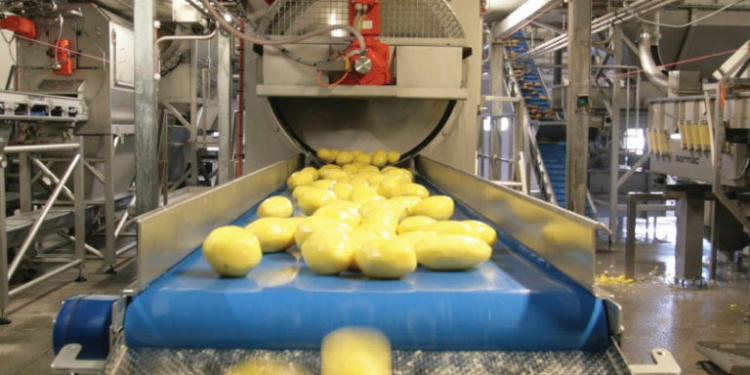Dutch equipment specialist Sormac made its name as an expert in solutions for potato peeling. The company has been building on this knowhow for almost a century, leading to a portfolio that today includes entire processing lines. I recently had the opportunity to visit Sormac’s Venlo headquarters and learn first-hand about machine and company development.
By Catalina Mihu
The Sormac name is synonymous with peeling solutions in the potato industry. While the company now develops machines for a range of products and processes, peelers were the first machines that they produced for the potato industry 25 years ago. Bert Haffmans has been in charge of the company since May 2003 and he is still at the head of Sormac.
Together with Roy Lemmen, sales director, and Kim Suntjens-Beeks, marketing manager, we took a look back at Sormac’s years of developing technology innovations, as well as into the future of its projects and that of the industry.
A technology timeline
“There are now three core elementsin our focus – reliability, technique and technology,” Roy Lemmen told us. When Mr. Haffmans started with Sormac, the mission was to prove reliability to the customers. After a certain period, the technical aspect of the business became the main focus, so that now Sormac will be able to provide customers with technology in every way required, having listened to market trends and the wishes of the end user.
Aside from peeling solutions, the company developed equipment for cutting, inspection, sorting, de-stoning, weighing, brush polishing and washing. These are available as stand-alone machines and also as part of complete and bespoke production lines, with capacities of up to 5,000 kg/hour. From the capacity point of view, Sormac machines are used by farmers who would like to add value to their products, as well as by large-scale industrial operations.
Leading in technology
The continuous knife peeler, which is one of the company’s core machines, together with the carborundum roller peeler, forms the heart of the potato peeling line.
The success of the drum knife peeler (the MS series) is in its ability to peel potatoes as if by hand and remove black spots after carborundum or steam peeling, thanks to the shape of the drum and the positioning of the knives. The patented three-point suspension is a floating suspension system that ensures the stable rotation of the drum with virtually no friction and low energy consumption. The MS-20 model has a peeling waste capacity of up to 700 kg per hour (and up to 1,750 kg/h raw material with 40% waste).
Research in the practicum laboratory
The practicum laboratory is a new addition to the facilities in Venlo. I had the pleasure of visiting this space, which is dedicated to testing specific issues in order to develop specific solutions, case-by-case. “It is something fairly new and we are working on developing this.” Roy Lemmen anticipated the company’s long-term goal to have an even closer partnership with customers. “We will use our know-how and build a solution together, in a two-way communication process,” he added.
Strategy highlights
The main trade shows where the Dutch specialist exhibits are Fruit Logistica, Anuga Foodtec in Germany, Interpom in Belgium, Gulfood Manufacturing in UAE and the United Fresh in the US. Aside from these shows, the company’s agents visit other shows with equipment and sales teams all over the world.
While the company’s growth plans do include expansion within the territories covered, their main focus will continue to be Europe. The explanation is simple: “We have to be strong here, to sell abroad.”






